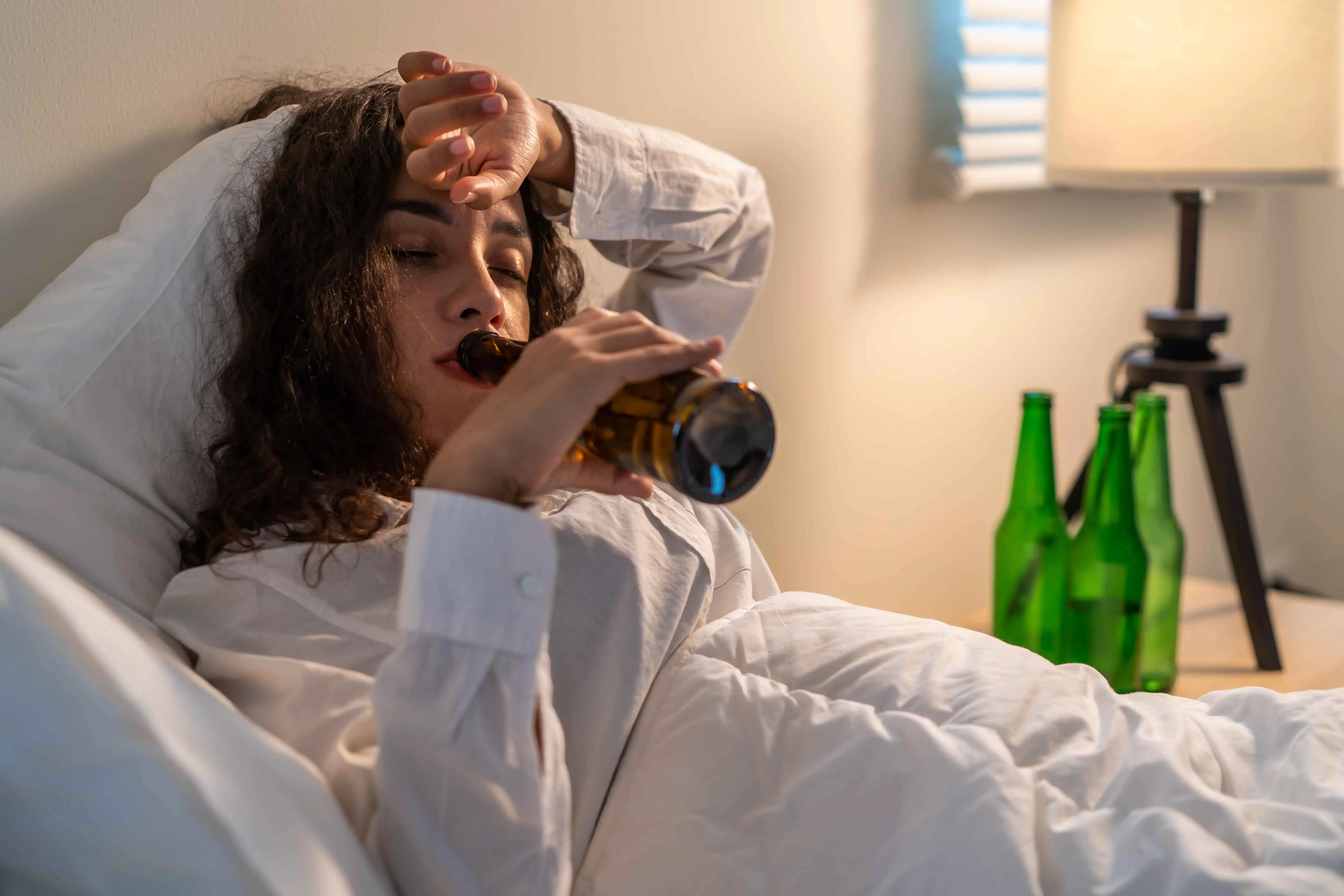The effects of alcohol on sleep quality and overall nutrition are far from beneficial. This article delves into the intricate interplay between alcohol consumption and sleep patterns, exploring how alcohol might be impacting your sleep more than you realize.
By examining the physiological effects of alcohol on sleep architecture, circadian rhythms, and overall sleep quality, we aim to provide a comprehensive understanding of why alcohol and restful sleep are often at odds.
How Alcohol Affects Sleep
Alcohol may appear to be a sleep aid, as it can induce a sedative-like effect. However, disrupted sleep patterns often follow this initial drowsiness, resulting in poor sleep quality. Alcohol is a central nervous system depressant, which means it slows down brain activity and can interfere with the natural sleep cycle.
The impact of alcohol on sleep can vary depending on several factors, including the amount consumed, the timing of consumption, and individual differences in metabolism and tolerance levels. While a moderate amount of alcohol may initially help you fall asleep faster, it can also lead to fragmented sleep, frequent awakenings, and decreased time spent in the restorative stages of sleep.
The Science Behind Alcohol and Sleep
To understand the complex relationship between alcohol and sleep, it's essential to grasp the underlying scientific processes. Alcohol affects some neurotransmitters and hormones involved in the sleep-wake cycle, including:
Melatonin
Alcohol consumption can disrupt the production and release of melatonin, a hormone that regulates the body's circadian rhythms and promotes sleep.
Adenosine
Alcohol can initially increase adenosine levels, a neurotransmitter that induces sleepiness. However, as the night progresses, alcohol can interfere with the natural buildup of adenosine, leading to disrupted sleep.
Gamma-Aminobutyric Acid (GABA)
Alcohol can initially enhance the effects of GABA, a neurotransmitter that promotes relaxation and sleep. However, prolonged alcohol exposure can lead to a depletion of GABA levels, contributing to sleep disturbances.
Glutamate
Alcohol can initially suppress the activity of glutamate, a neurotransmitter involved in arousal and wakefulness. However, as the night progresses, alcohol can cause a rebound effect, leading to increased glutamate levels and disrupted sleep.
The Role of Alcohol in REM Sleep
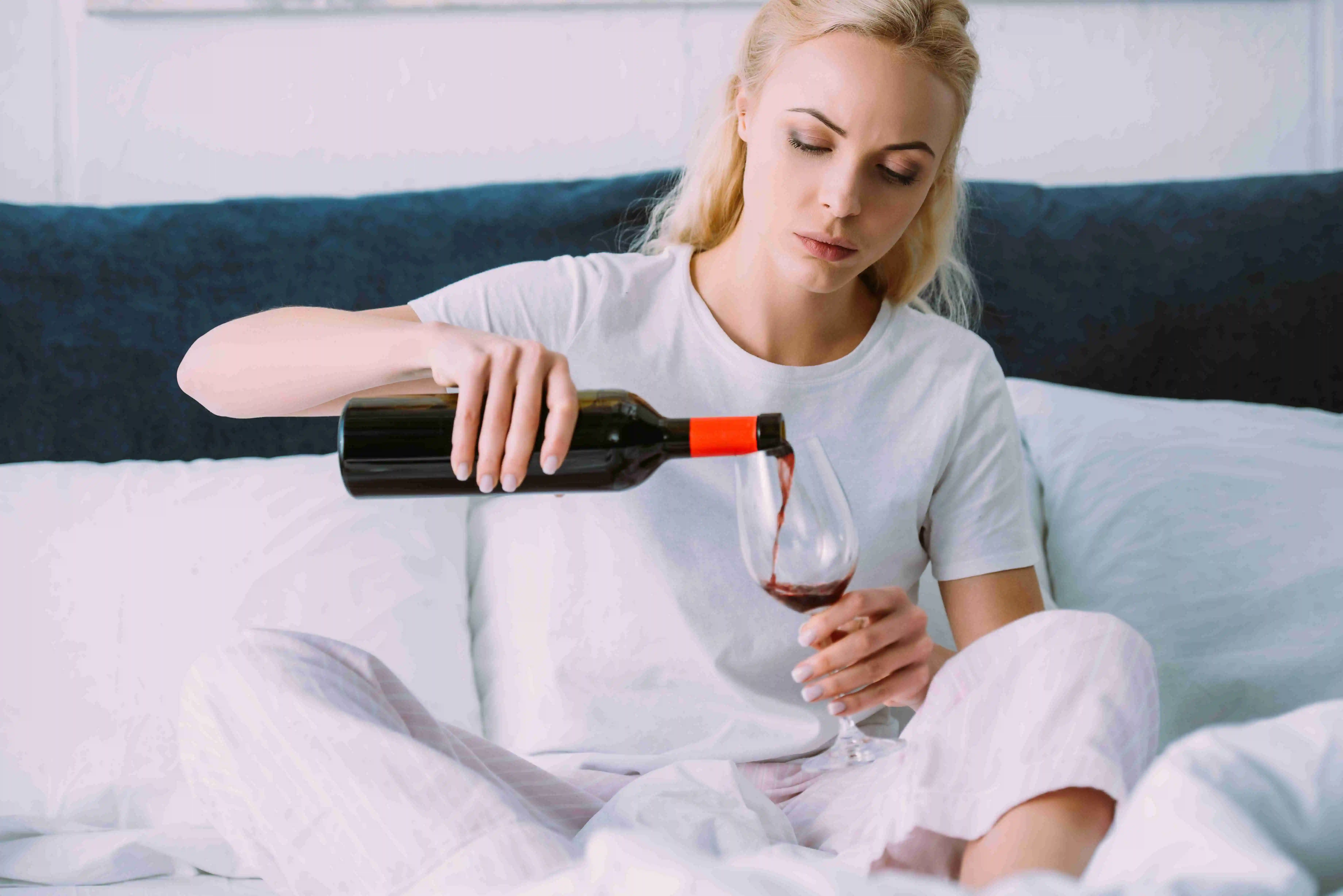
Rapid Eye Movement (REM) sleep is a crucial stage of the sleep cycle, during which dreaming occurs and important cognitive and emotional processes take place. Alcohol consumption can have a significant impact on REM sleep, leading to the following effects:
- REM Sleep Suppression: Alcohol can initially suppress REM sleep, leading to a decreased amount of time spent in this stage during the first half of the night.
- REM Sleep Rebound: As the night progresses and alcohol levels in the body decrease, there can be a rebound effect, with an increased amount of time spent in REM sleep during the latter half of the night.
- Disrupted REM Sleep Quality: Even when REM sleep occurs, alcohol can impair the quality of this stage, potentially affecting cognitive function, memory consolidation, and emotional processing.
Disruptions in REM sleep can have far-reaching consequences, including impaired cognitive performance, mood disturbances, and increased risk of certain mental health conditions.
Short-Term Effects of Alcohol on Sleep
In the short term, alcohol can have the following effects on sleep:
- Decreased Sleep Onset Latency: Alcohol may help you fall asleep faster, as it can induce a sedative-like effect.
- Increased Sleep Fragmentation: While alcohol may help you fall asleep more quickly, it can lead to frequent awakenings throughout the night, resulting in fragmented and non-restorative sleep.
- Decreased Sleep Quality: Drinking alcohol can shorten the duration of the restorative stages of sleep, such as rapid eye movement (REM) sleep and deep sleep, which can result in poorer sleep quality and impaired cognitive function the next day.
- Increased Snoring and Sleep Apnea Risk: Alcohol can relax the muscles in the throat, increasing the likelihood of snoring and exacerbating sleep apnea symptoms.
Long-Term Effects of Alcohol on Sleep
Chronic alcohol consumption can have significant long-term effects on sleep quality and overall health. Some of these effects include:
- Sleep Disruption and Insomnia: Regular alcohol consumption can lead to persistent sleep disruption and insomnia, even on nights when alcohol is not consumed. This can be due to the development of tolerance and dependence, as well as disruptions in the body's natural sleep-wake cycles.
- Increased Risk of Sleep Disorders: Long-term alcohol use has been linked to an increased risk of developing sleep disorders such as sleep apnea, restless leg syndrome, and periodic limb movement disorder.
- Impaired Sleep Architecture: Chronic alcohol consumption can alter the normal sleep architecture, reducing the time spent in the restorative stages of sleep and increasing the time spent in lighter, less restorative stages.
- Exacerbation of Existing Sleep Problems: Alcohol can exacerbate pre-existing sleep problems, such as insomnia or sleep apnea, leading to a vicious cycle of poor sleep and increased alcohol consumption.
- Negative Impact on Overall Health: Chronic alcohol consumption and poor sleep quality can have negative impacts on overall health, including increased risk of cardiovascular disease, metabolic disorders, and cognitive impairment.
Alcohol and Sleep Disorders
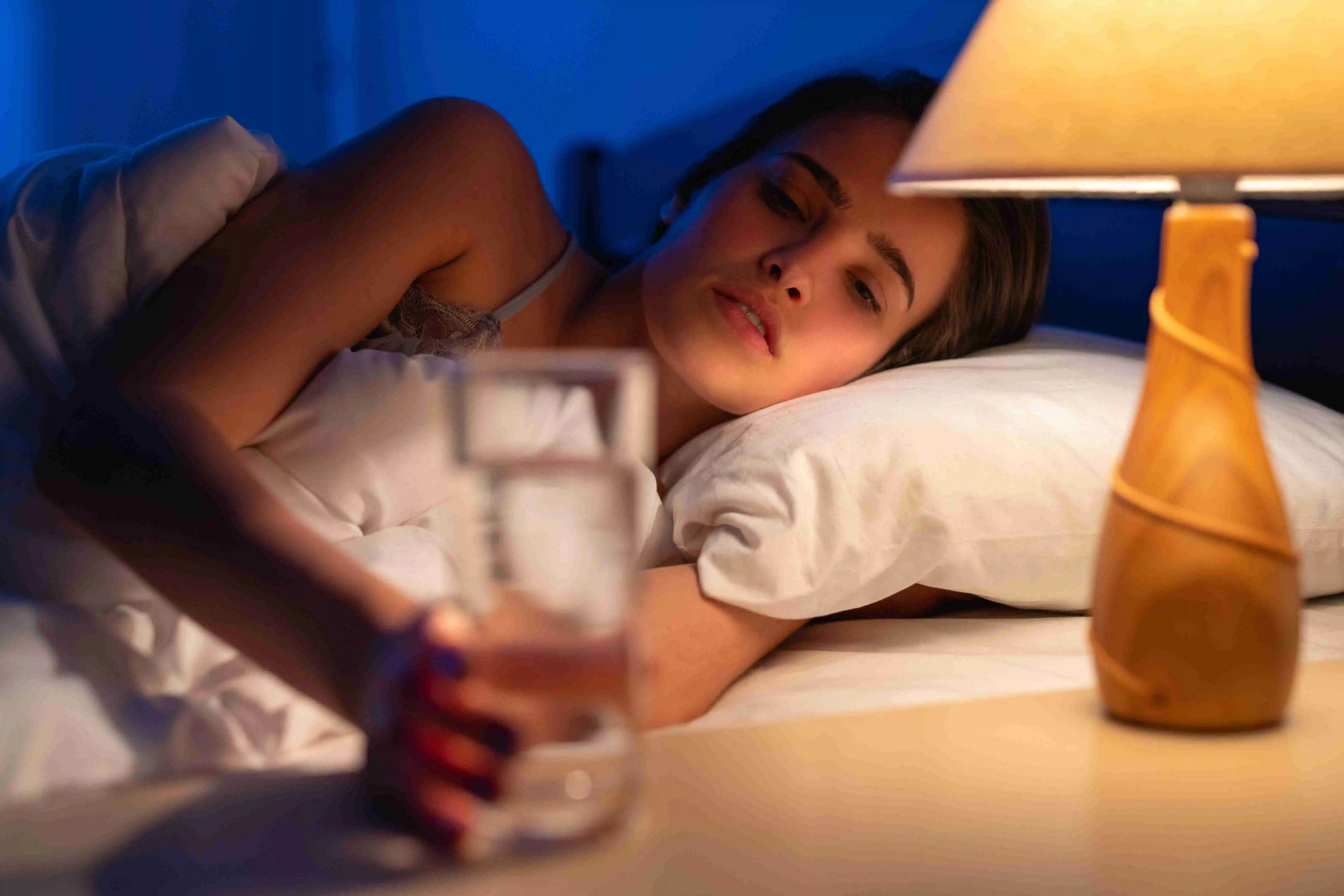
Alcohol consumption can contribute to the development or exacerbation of various sleep disorders, including:
Sleep Onset
Alcohol's relationship with sleep onset is complex and often misleading. While many people use alcohol as a sleep aid because of its initial sedative effects, this approach can be counterproductive in the long run. Alcohol may indeed help some individuals fall asleep faster, creating a false sense of its effectiveness as a sleep remedy.
Sleep Stages
Alcohol consumption significantly alters the normal progression through sleep stages, disrupting the natural sleep architecture. In the early part of the night, alcohol tends to increase deep sleep (N3 stage) while reducing REM sleep. This might initially feel like more restful sleep, but it's actually a disruption of the natural sleep cycle.
Fragmented Sleep
One of the most significant impacts of alcohol on sleep is fragmentation, particularly in the latter half of the night. As the body metabolizes alcohol, it leads to more frequent awakenings, resulting in choppy, low-quality sleep. Alcohol's diuretic effect often exacerbates this fragmentation, increasing the need for nighttime bathroom visits and further disrupting sleep continuity.
Circadian Rhythm Disruption
Alcohol's impact on the body's circadian rhythm is profound and multifaceted. It interferes with the body's natural timekeeping mechanisms by decreasing sensitivity to important environmental cues like daylight and darkness. This interference can throw off the internal biological clock that regulates the sleep-wake cycle.
Sleep Apnea
Alcohol can relax the muscles in the throat, increasing the risk of obstructive sleep apnea, a condition characterized by repeated episodes of breathing interruptions during sleep.
Insomnia
Chronic alcohol use can disrupt the body's natural sleep-wake cycles, leading to insomnia, which is the persistent difficulty falling or staying asleep, even on nights when alcohol is not consumed.
Restless Leg Syndrome (RLS)
Alcohol consumption has been associated with an increased risk of developing RLS, a condition characterized by an uncontrollable urge to move the legs, often accompanied by uncomfortable sensations.
Periodic Limb Movement Disorder (PLMD)
Alcohol can contribute to the development or worsening of PLMD, a condition characterized by involuntary limb movements during sleep, leading to disrupted sleep and daytime fatigue.
How to Improve Sleep Quality While Consuming Alcohol
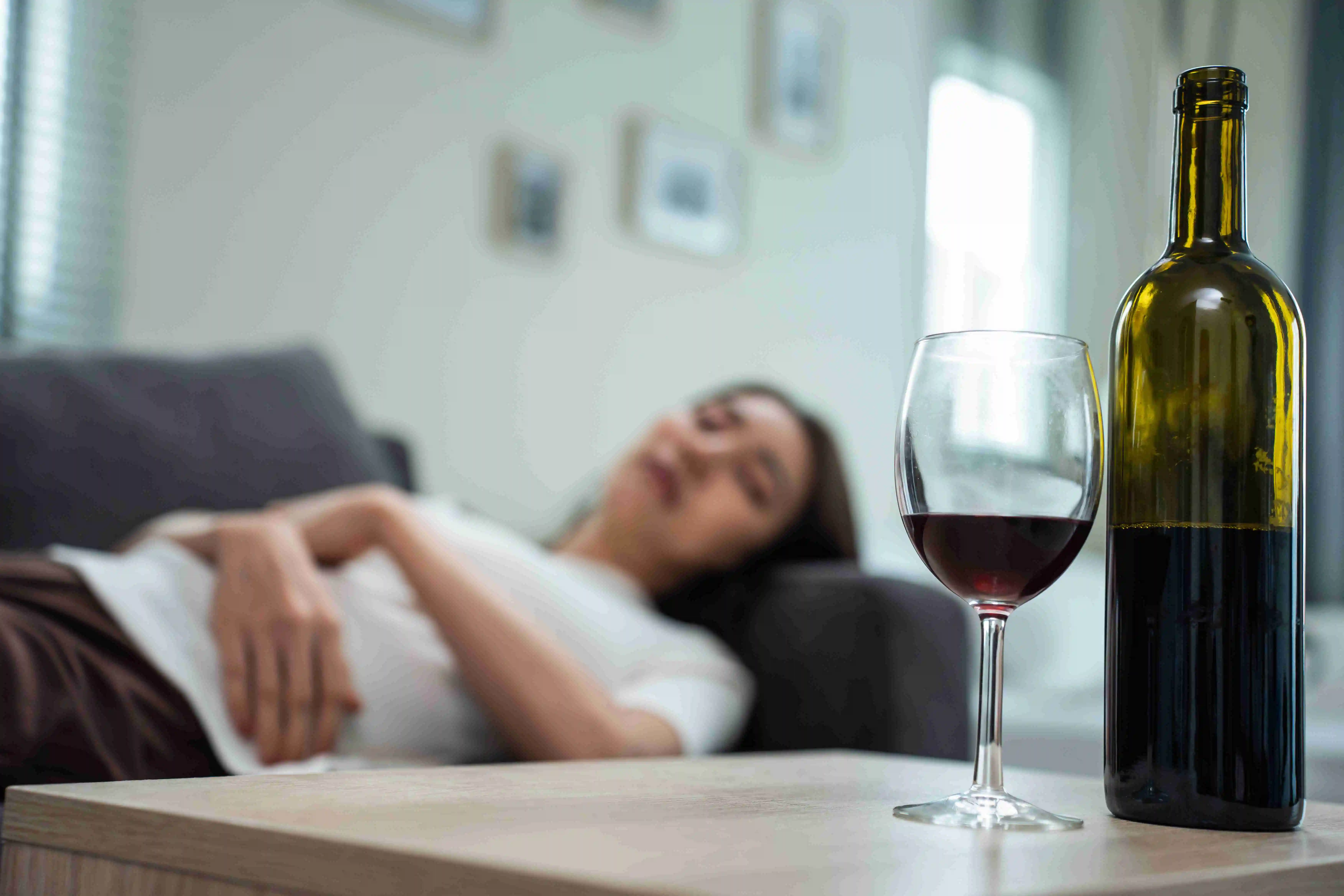
If you choose to consume alcohol, there are several strategies you can employ to minimize its impact on sleep quality:
Moderate Alcohol Consumption
Following the Dietary Guidelines for Americans, limit your alcohol consumption to moderate levels—up to one drink per day for women and up to two drinks per day for men.
Timing of Consumption
Avoid consuming alcohol close to bedtime, as it can disrupt the later stages of sleep. Aim to finish your last alcoholic beverage at least 3–4 hours before your desired bedtime.
Hydration
Alcohol can contribute to dehydration, which can further disrupt sleep quality. Make sure to drink plenty of water before, during, and after consuming alcohol.
Establish a Consistent Sleep Routine
Maintain a regular sleep schedule and create a relaxing bedtime routine to promote better sleep quality, regardless of alcohol consumption.
Exercise Regularly
Regular physical activity can improve sleep quality and help counteract the negative effects of alcohol on sleep.
Learn More: Best Exercises for Sleep.
Addressing Underlying Sleep Issues
If you experience persistent sleep problems, it's essential to seek professional help and address any underlying sleep disorders, mental health issues, or other health conditions that may be contributing to your sleep difficulties.
Alternatives to Alcohol for Better Sleep
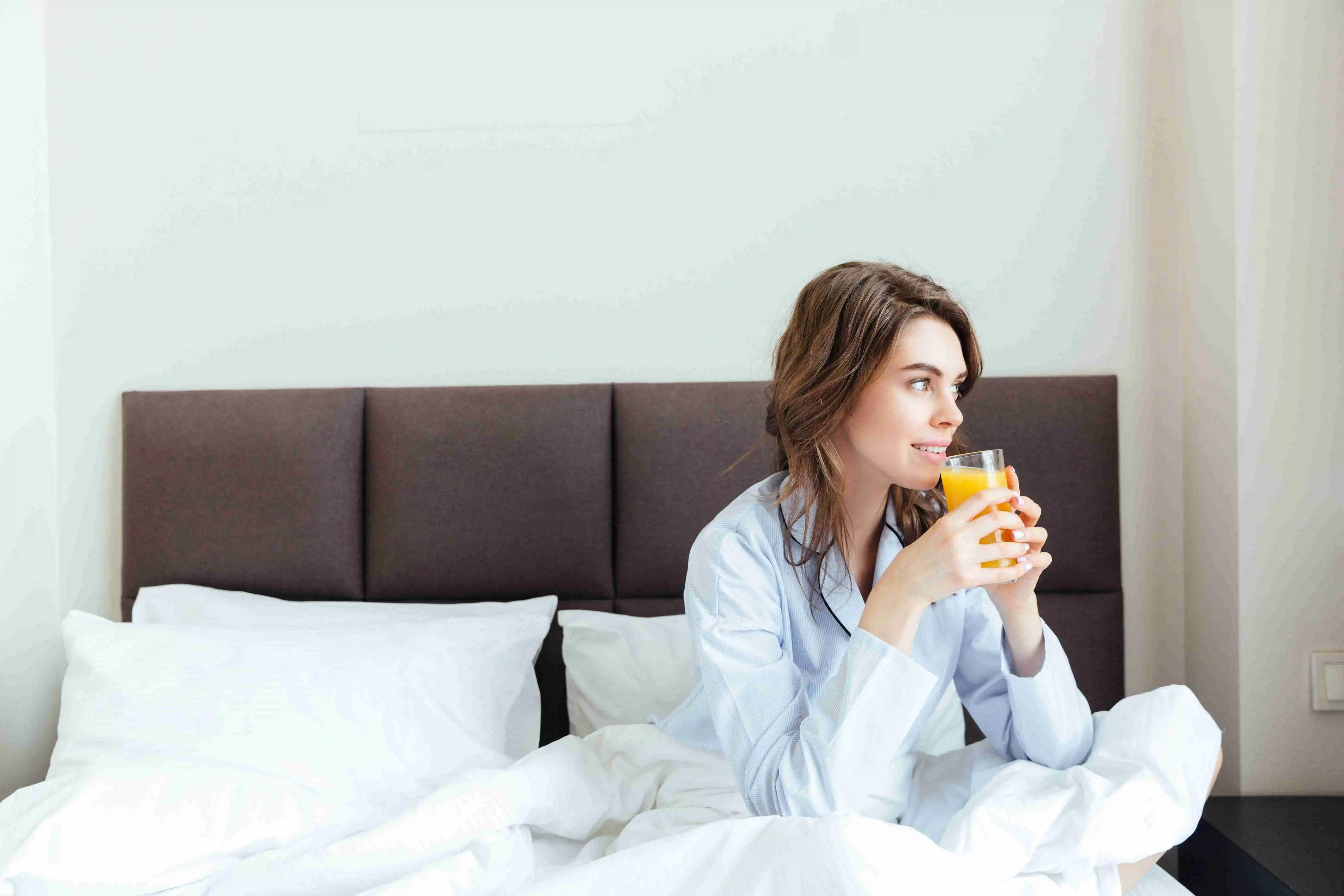
If you're seeking ways to improve your sleep quality without the potential negative effects of alcohol, consider exploring the following alternatives:
- Herbal Teas: Certain herbal teas, such as chamomile, valerian, and passionflower, slippery elm, have been traditionally used to promote relaxation and improve sleep quality.
- Melatonin Supplements: Melatonin is a naturally occurring hormone that regulates the sleep-wake cycle. Melatonin supplements can help adjust your body's circadian rhythms and improve sleep quality, but it's essential to consult with a healthcare professional before using them.
- Relaxation Techniques: Practices such as deep breathing exercises, meditation, and progressive muscle relaxation can help reduce stress and promote a calm state of mind, conducive to better sleep.
- Exercise and Physical Activity: Regular exercise and physical activity can improve sleep quality by reducing stress, promoting better sleep-wake cycles, and contributing to overall physical and mental well-being.
- Cognitive-Behavioral Therapy for Insomnia (CBT-I): CBT-I is a structured program that helps individuals identify and modify thoughts and behaviors that contribute to sleep difficulties, providing effective strategies for improving sleep quality.
- Addressing Underlying Health Conditions: If you suspect that an underlying health condition, such as anxiety, depression, or chronic pain, is contributing to your sleep difficulties, seeking appropriate medical treatment can be crucial for improving sleep quality.
FAQs
Can a glass of wine help me sleep better?
While a small amount of alcohol may initially induce drowsiness, it can disrupt the later stages of sleep and lead to poor sleep quality overall. It's generally recommended to avoid alcohol close to bedtime for better sleep.
Is it okay to have a couple of drinks every night to help me fall asleep?
Regularly consuming alcohol as a sleep aid is not recommended, as it can lead to dependence, tolerance, and disruptions in the natural sleep-wake cycle. Over time, this can contribute to persistent sleep problems and other health issues.
Can alcohol help with insomnia? Does alcohol help you sleep?
While alcohol may initially help you fall asleep faster, it can disrupt your overall sleep quality and lead to frequent awakenings throughout the night. Alcohol is not an effective long-term solution for insomnia and may exacerbate the condition over time.
Does alcohol reduce sleep quality?
The type of alcohol consumed can have some influence on sleep quality, but in general, all types of alcoholic beverages can potentially disrupt sleep to varying degrees. It's best to limit or avoid alcohol consumption for optimal sleep quality, regardless of the type of alcohol.
Can alcohol worsen sleep apnea symptoms? How does alcohol affect sleep quality?
Yes, alcohol consumption can exacerbate sleep apnea symptoms by relaxing the muscles in the throat and increasing the likelihood of airway obstruction during sleep. If you have sleep apnea, it's crucial to avoid alcohol, especially close to bedtime.
Conclusion
As we've explored throughout this article, the relationship between alcohol and sleep is far more complex than it might initially appear. While many turn to alcohol as a quick fix for sleep troubles, the evidence clearly shows that this approach is counterproductive and potentially harmful in the long run. The temporary sedation alcohol provides comes at the cost of disrupted sleep architecture, fragmented rest, and circadian rhythm disturbances.
Jessica H.
Jessica is a reviewer, writer, and sleep enthusiast at Sleepiverse. Jessica graduated with her master's degree in Nursing research and education. She is a registered nurse and currently works in the Intensive Care Unit. Since becoming a nurse, Jessica has worked the night shift, which means a disrupted sleep schedule. Knowing she needed to function at her best while caring for patients at night, she spent a lot of time researching how to sleep well with a difficult schedule.


